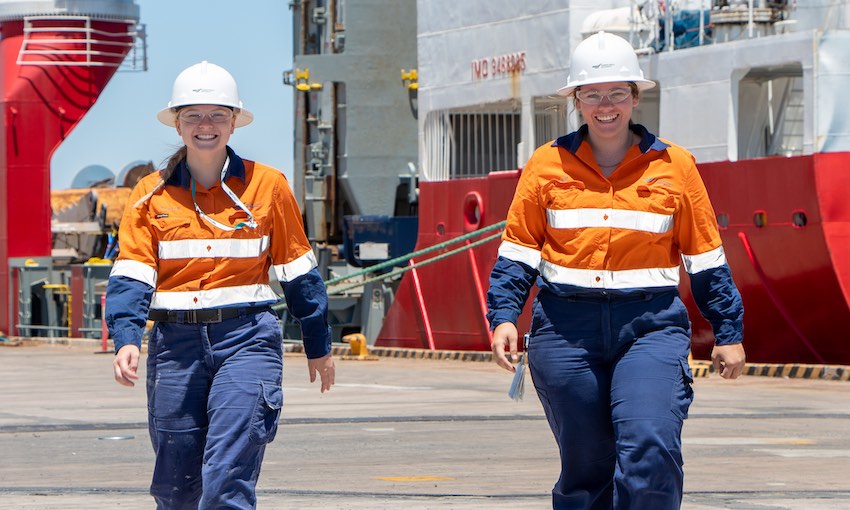Katelyn Arnold is a marine cadet with Pilbara Ports Authority. DCN interviewed her as part of its coverage of the IMO’s International Day for Women in Maritime.
First of all, could you briefly tell us about yourself, your role and what it entails?
I’ve lived in Karratha since 2005, and my family is originally from Tom Price. Growing up in small towns and being so close to the ocean has definitely influenced my line of work. I’m currently undergoing a cadetship with PPA. I’ve got 300 days to complete at sea, so 18 months over two years. So far, I’ve completed just over 12 months at sea. My current goal is to become certified as a master unlimited, and from there, hopefully branch into something like pilotage.
What brought you into the industry?
When I was in school, I was lucky enough to take part in two scholarships with the Leeuwin, a tall ship based in Fremantle. That’s originally what started my love and my passion for the water, and opened up many careers I didn’t even know existed. Then in my senior years at school, I did work experience with Rio Tinto and got invited to go on the tugs. Those experiences were eye-openers for me. I just could not wait to finish school and work my way into the industry.
Could you tell us about some of the barriers you have encountered in the industry and how you overcame them?
Some challenges I’ve faced in the industry are spending long periods away – six months at the bare minimum – and that distance and separation from home, my family and friends. Another big barrier is being the only female on board. But that female stereotype is also another huge challenge; I have to get in and show I’m capable and can work just as hard as the males in the industry. I guess breaking that stereotype would definitely be the biggest challenge I’ve faced on board. A fact I can never forget is that women make up only 1.2% of the seafaring workforce, but a majority of those women are working in the cruise ship industry, so in the galley or as cleaners. Women are still facing barriers to break into the industry and become sailors.
What has been the biggest positive change for women in the industry you’ve seen?
I think the biggest positive change in the maritime industry would be that companies are starting to realise that there is a stereotype. They’re not ignoring it; they’re actually slowly starting to educate the people who come on board. For example, in my shipping company, while on board we do a monthly training and awareness program around harassment. There’s definitely training out there, which is really great to see. I can already tell the difference within the people I’m working with.
What needs to change to encourage more women in the workforce?
I believe continuing the training and awareness programs will change and slowly break down the stereotype. It’s not going to happen overnight; it is a long process and companies need to show that they’re willing to help reduce the stereotype. But another thing I’ve suggested is that, if the shipping company does have enough females, they should actually implement a buddy system. So that means there’d be two females on board one ship, just so that there is another woman if you need someone to talk to or reach out to. And hopefully, that will encourage females who might be shying away from the industry because they are afraid of being the only female on board. I think that’d would put some people at ease and would hopefully encourage more females to join the industry as well.
What does the International Day for Women in Maritime mean to you?
Women have achieved so much in this industry. I think of International Day for Women in Maritime as a day to celebrate and raise awareness. I hope it educates people about the work we are involved in and the challenges we face. It also creates a sense of community where females can voice their opinions and educate other females about such an incredible industry. And hopefully we can boost the percentage of females in this industry, because it is such a fabulous, adventurous, amazing industry to be a part of.

